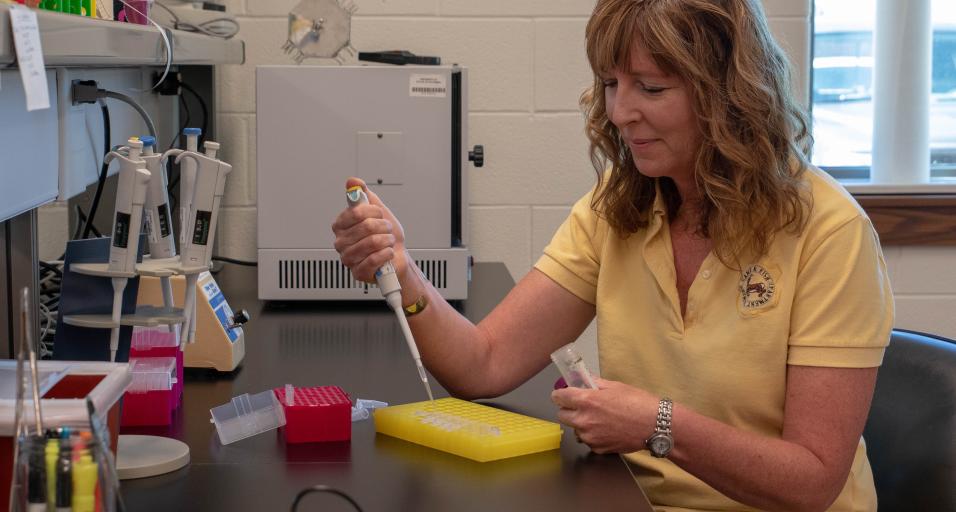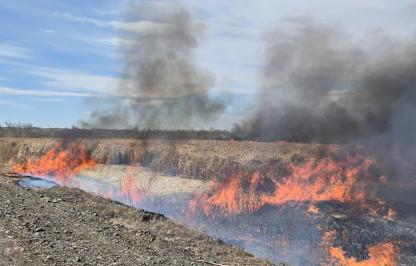After more than a year of rigorous preparation, the Wyoming Game and Fish Department’s Wildlife Forensics and Fish Health Lab recently received accreditation through the American National Standards Institute’s National Accreditation Board. It’s the top accreditation a lab can acquire, and it makes the Game and Fish facility one of the most trusted wildlife forensic labs in the country.
The Game and Fish lab provides forensic work, tooth aging and fish health services to the Game and Fish, as well as a dozen other states.
“The lab ensures that Wyoming’s wildlife is defended in courts and is properly managed by providing scientific data to game managers,” said Kim Frazier, laboratory director.
Accreditation is a highly-coveted standard. Frazier notes it's the “bar all labs want to reach.”
To be accredited, an unaffiliated agency ensures a laboratory is meeting specific standards. The process includes an assessment of the lab’s technical qualifications and competence for conducting specific testing activities. Accreditation provides valuable oversight by ensuring that someone outside the laboratory has confirmed that the lab is following their required procedures. It also demonstrates the lab is operating competently and generates valid results for its clients, thereby promoting confidence in its work.
The list of requirements for accreditation is long and stringent. A lab must develop a Quality Management System (QMS) to establish and control work processes, manage resources, conduct evaluations, and make continual improvements to ensure consistent quality results. Frazier and her staff worked tirelessly on a QMS to prove all the lab’s processes and procedures met the accreditation standards.
“We had to show them examples of procedures we do in the lab, and demonstrate that we do it accurately and safely,” Frazier said.
Game and Fish has been planning for lab accreditation since 2015, when the U.S. Department of Justice announced their intent to require labs that receive federal funds to acquire and maintain accreditation. And, those accreditation requirements were a driving force for finding a new home for the lab. It resulted in the new facility that opened in 2018 as part of the Game and Fish regional office in Laramie. At 19,000 square feet, the new facility is nearly four times the size of the old lab.
“The new facility provides additional space and upgrades that made accreditation a reality,” Frazier said.
The lab also provides a separate workspace for forensics and fish health. In the old facility, the fish health staff shared space with forensics and DNA testing equipment, which would have prevented accreditation of the forensics laboratory.
Accreditation is important for processing evidence for law enforcement cases. Each year, the forensics lab works on 70 to 80 cases involving poaching of Wyoming’s wildlife. Forensics studies provide game wardens with necessary proof in law enforcement cases.
“Accreditation helps with credibility in court, and ensures we are doing the best science possible,” Frazier said.
The Forensics and Fish Health Lab celebrated its 50th anniversary in 1998 and is now approaching its 75 anniversary. The new facility and prestigious accreditation should allow the lab to continue to serve the people of Wyoming well into the future.
“We have always been following the standards required for a forensic lab,” Frazier said. “Now we are accredited to them.”
Game and Fish lab receives prestigious national accreditation
Sara DiRienzo, Public Information Officer - (sara.dirienzo@wyo.gov)



